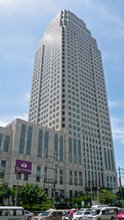From the Nation newspaper...
Tarisa says end to political doubts, confirming election, encouraging investment will provide big boost
The Bank of Thailand (BOT) has called for the government to set a clearer political direction and specify the timing of the general election to boost confidence and the economy in the second half of this year.
Tarisa Watanagase, the central bank governor, believed the economy would pick up at the end of the third quarter as a result of clearer economic policies, accelerating public investment, lower interest rates and an improved political situation.
"Political certainty will be a key factor to help boost growth," she said.
Tarisa said the government needed to encourage private investment so that it grows continuously and becomes a key economic generator over the next few years as exports were likely to expand at a slower pace.
She said that just decreasing interest rates alone could not boost the economy. The government's policies to restore political certainty and introduce new economic measures would encourage investors to put money in new projects.
"We have been going through a critical period for the Thai economy and both the public and private sector must help to sustain it," the governor said.
Tarisa's statement is in line with the Finance Ministry's forecast for a recovery in the second half of the year.
Suparut Kawatkul, permanent secretary of the Finance Ministry, said yesterday that the 4-per-cent salary rise for state agency staff would help boost economic growth, as spending power would rise. This would help lift the economy in the third and fourth quarters. However, he also cited some uncertainties, particularly the political situation, which might affect growth.
In the fourth quarter, when the government starts to run a budget deficit for fiscal 2008, funds would be injected into the system to help fuel the economy, Suparut said.
Tarisa also said the economy would see full benefit in the second half from declining interest rates and spending policies.
The government had already made its policy on mega-project investment clearer, had resolved environmental problems at Map Ta Phut and has introduced eco-car tax incentives, which could increase confidence and bolster domestic demand.
"The economy will improve at the end of the third quarter or the beginning of the fourth quarter, which will become the driving force for next year's economy to grow by 4.3-5.8 per cent."
The forecast assumed there would be no severe internal or external incidents.
She said that aside from an increase in oil prices, the political situation was a key risk factor influencing confidence as consumers and investors had been taking a close look on whether the draft constitution would be approved.
"Once politics returns to normal, private investment, which has been held back for a long time, will run forward significantly," the governor said.
"The heart of the issue is how to stimulate investors, particularly those who have hesitated, to be confident and come back again," she said.
Private consumption rose 1.3 per cent in the first quarter, lower than the 3.1 per cent growth last year. The slowdown happened in the auto, electronic equipment and electricity sectors.
Private investment fell for the first time in many years with a 2.4 per cent contraction, compared with growth of 3.9 per cent last year.
But sound economic fundamentals, including high employment and a good fiscal position, had helped the economy grow incessantly, she said. Good stability with a current account surplus, low foreign debts, and strong international reserves had helped limit problems from the slowdown.
A leading fund manager was earlier quoted by Thai News Agency as saying the Stock Exchange of Thailand's composite index was likely to rally to 800 points if a general election is held late this year, as scheduled.
Maris Tarab, president of the Asset Management Companies' Association, said all parties were waiting to see the general election take place.
If the election was held on schedule the SET index would continue to rise and hit 800 points. He said political uncertainties had put pressure on investment sentiment in the market since early this year.
Piyavet Hospital chairman Boon Vanasin, a major investor, also said he planned to increase investment in the SET by Bt50-100 million once political confusion eases. He said he would invest in blue-chip stocks in the energy, banking and property sectors as he believed the index would gradually climb.
Meanwhile, the Finance Ministry said government capital spending had increased and started to boost economic growth.
The Comptroller General's Department said yesterday that disbursement of capital spending in May was up nearly Bt41 billion, or 9 per cent, compared with the same month last year. Total budget disbursement last month was Bt131.31 billion, or 2.3 per cent up, year-on-year. The disbursement in the first eight months of fiscal 2007 was Bt906.61 billion or nearly 58 per cent of the planned budget. Its rate of disbursement was 1.7 per cent lower year-on-year. But capital spending was up by 1.3 per cent to Bt161.82 billion. The government has tried to speed up budget disbursement to boost growth at a time of political uncertainty.
The University of the Thai Chamber of Commerce also said at a press conference its latest survey showed the business sector viewed the negative factors affecting the economy as having bottomed out to a clearer political situation. But the economy for the rest of the year would be affected by factors such as oil prices and exchange rates.


No comments:
Post a Comment